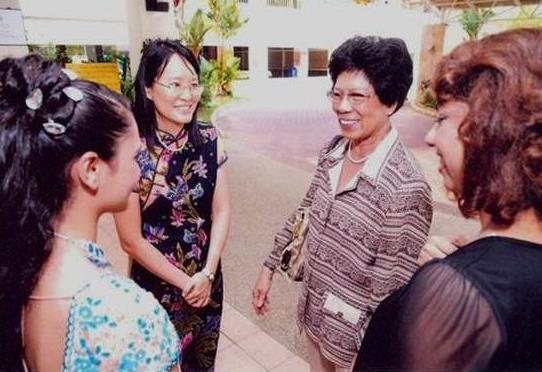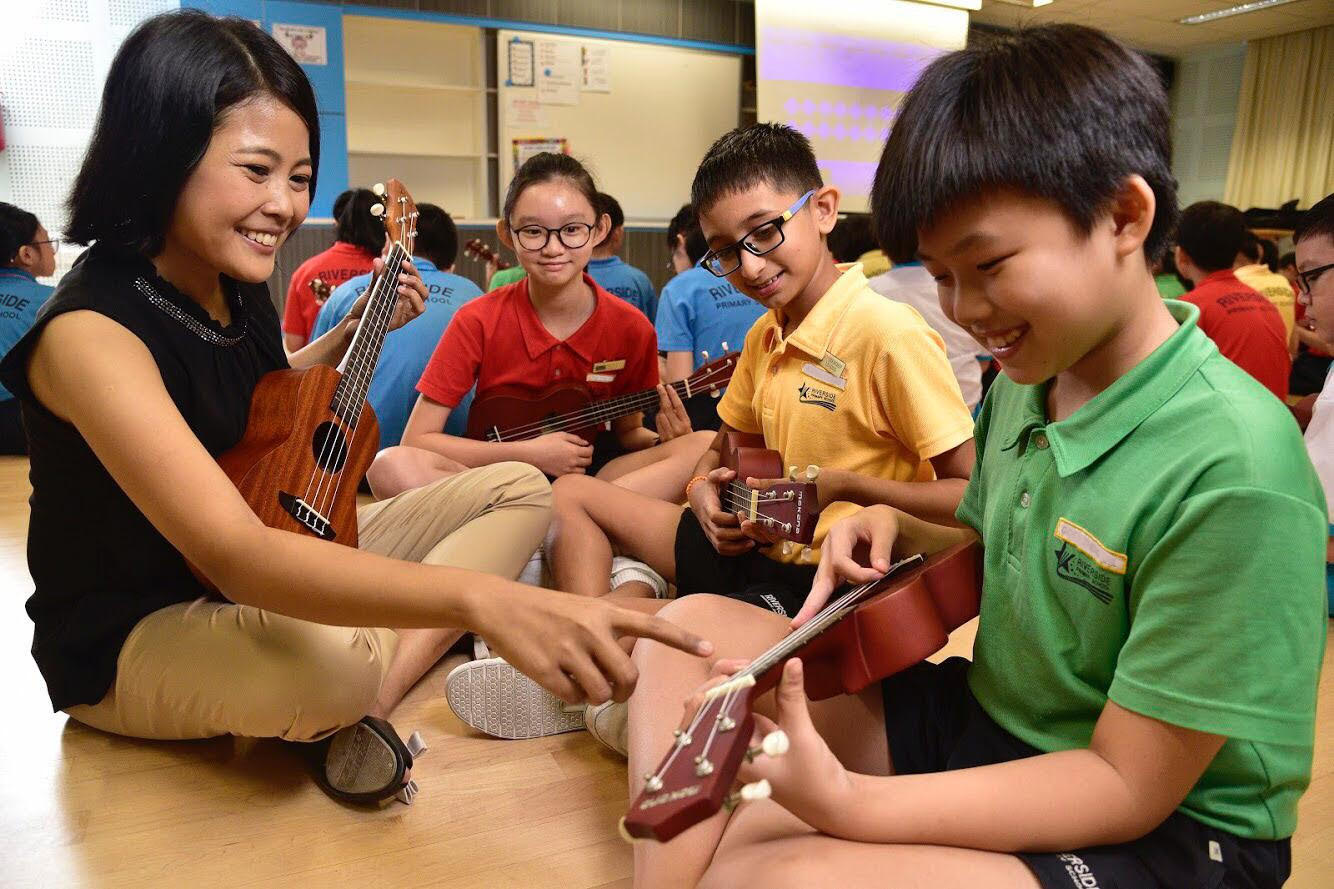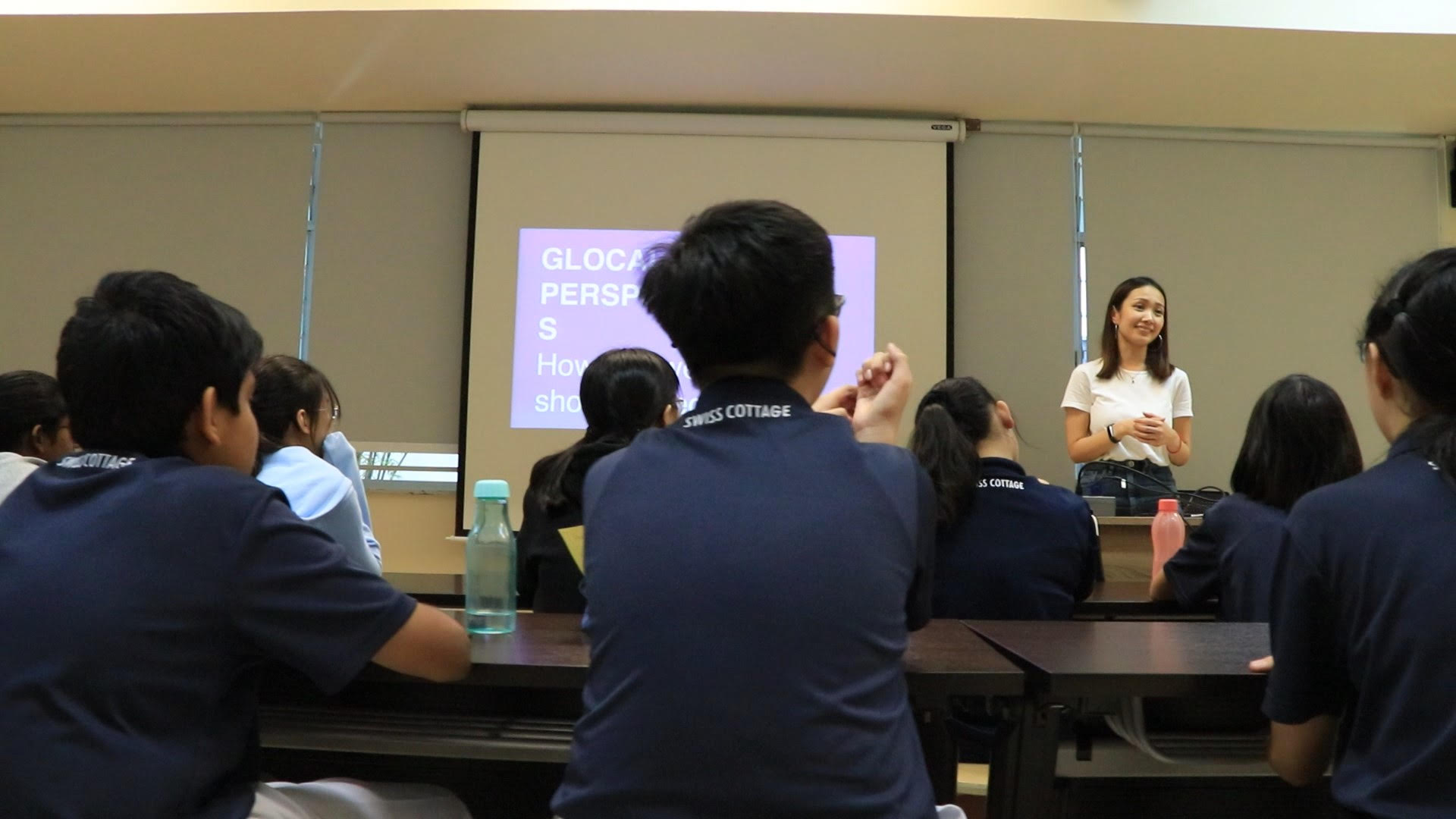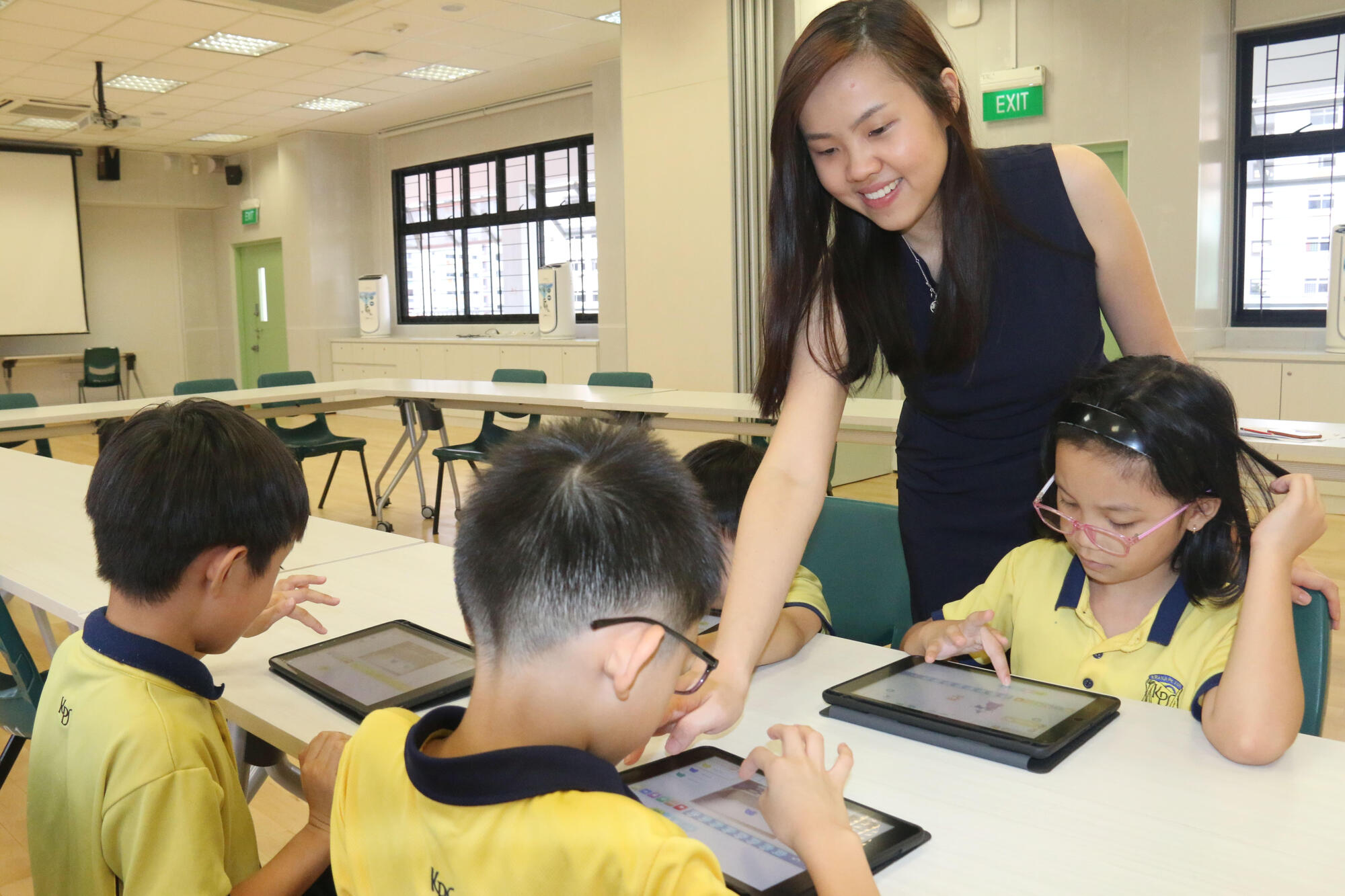Ahead of her time
20 Aug 2014
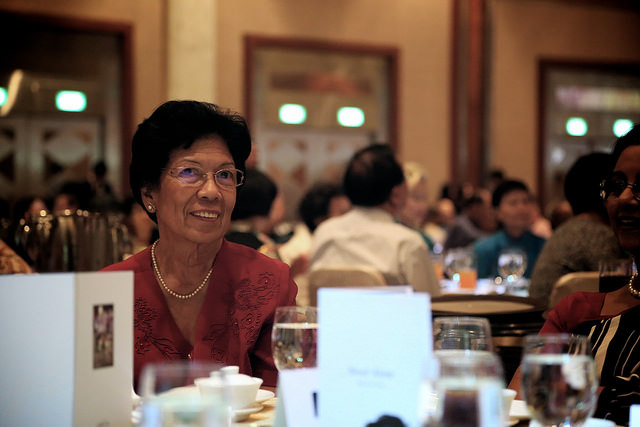
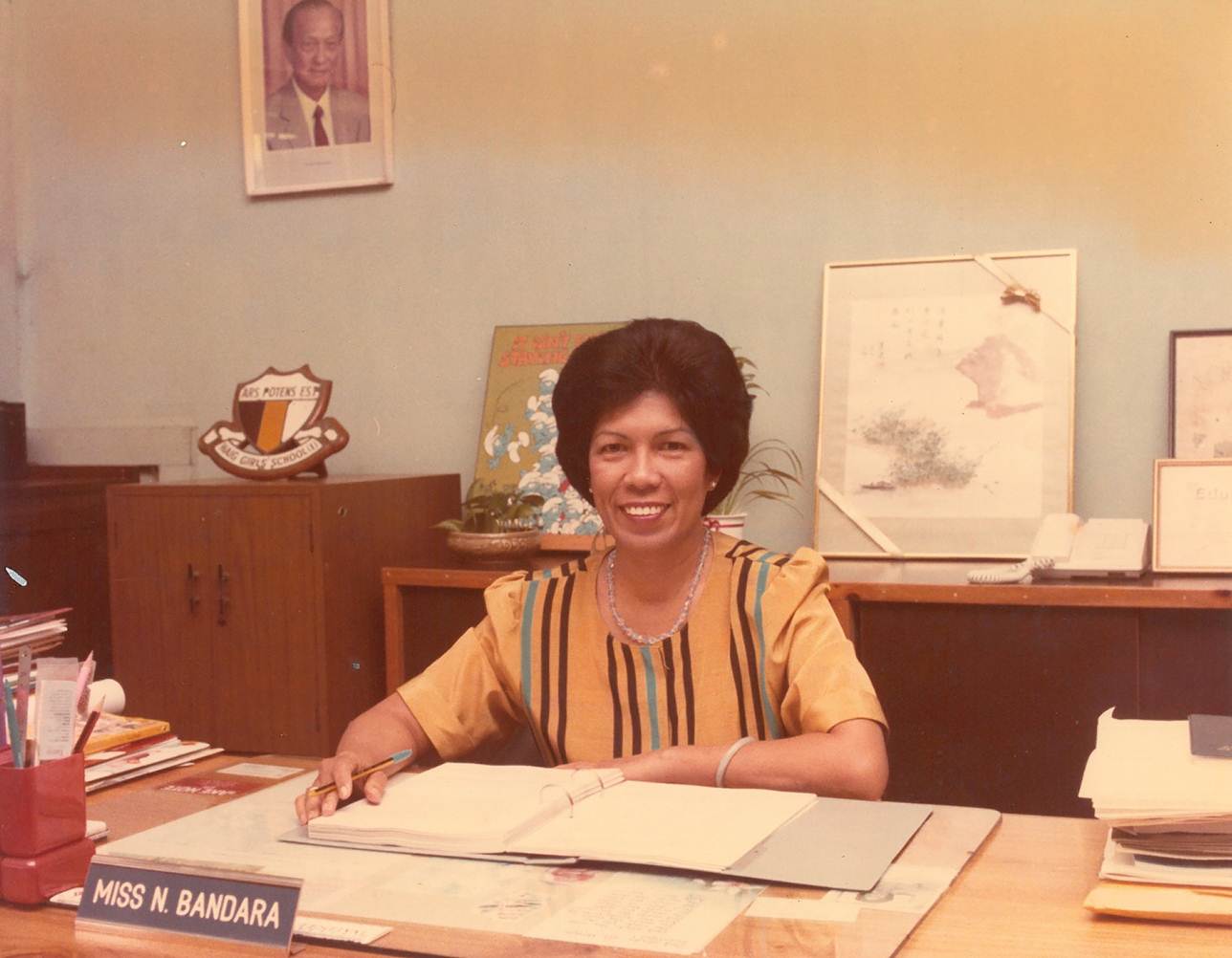
She was just 36 when she found herself unexpectedly appointed principal of Haig Girls’ School in 1975. The rapid promotion meant Ms Nandavathy Bandara, who had been teaching at the school for 14 years, had no formal training as a principal and was younger than many of the veteran teachers then under her charge.
But Ms Bandara turned her relative inexperience into an asset. She didn’t shy from trying new methods, even though some met with initial resistance. She persevered in her belief that a good education meant more than good exam results.
Recognising parents’ roles
As a teacher, Ms Bandara realised that parents did not always exert a positive influence. Some students played truant or attended school but would fall asleep in class. She later learnt that many had to help out at their parents’ hawker stalls after school. “I’d reason with (the parents) and try to convince them to let their children finish their homework and rest after school hours, though it was difficult because most parents needed the help,” she said.
During a fellowship at the University of Maryland in the US in the early 1970s, Ms Bandara observed that American parents were actively involved in their children’s school lives. When she became principal of Haig Girls’ School, she decided to bring parents into the picture – not just those with errant children, but all parents.
Initially, many parents questioned this. Ms Bandara recalled: “(They) were asking ‘why must I come if my child is good?’” But parents soon enjoyed learning about their children’s progress in school.
Going beyond good grades
Another controversial initiative was her move to abolish classroom rankings. Long before de-emphasising school grades became a national issue, Ms Bandara decided that too much focus on academic results could detract from learning and breed unhealthy competitiveness.
To parents, “one mark made a lot of difference – it could mean the difference between being first or second in class”, she said. “The kids would get a scolding or even a beating over this.”
“Some of the teachers actually resisted [this move] because they said the parents would question them, but after a while everyone came round to it.”
Looking back after four decades, Ms Bandara – who went on to become the principal of Raffles Girls’ Primary School in 1988 until her retirement in 1999 – wishes she had learnt more interpersonal skills. “I was a task master more than someone who would win over the hearts of the teachers in a nice way,” she said. “I just wanted the best for (my students)… I wanted them to be all-rounders, to maximise their potential.”
Lessons outside the classroom
Providing an all-rounded education had been a priority for Ms Bandara since she was a teacher. Despite budget constraints and disbelief from some colleagues, Ms Bandara set about building an eco-pond in the compound of Haig Girls’ School, by using an old bathtub lowered into the ground. Shovel in hand, she joined the school gardeners in digging a hole and installing the “pond” over a weekend, filling it with water plants, frogs and fish, for students to learn beyond the textbooks.

Ms Bandara also took students on field trips to the Botanic Gardens and used leaves from her garden to teach plant biology. She even helped them cultivate a garden of their own. They grew bitter gourd, spinach and cucumber, which were sold to the principal and teachers so they would have money for more gardening supplies.
These anecdotes exemplify two of Ms Bandara’s axioms for principals: to be actively involved in school activities, and to think outside the box. Her third axiom is to understand each child’s potential. “Every student is different,” she said. “Help the weak ones; challenge them. They will remember you.”


